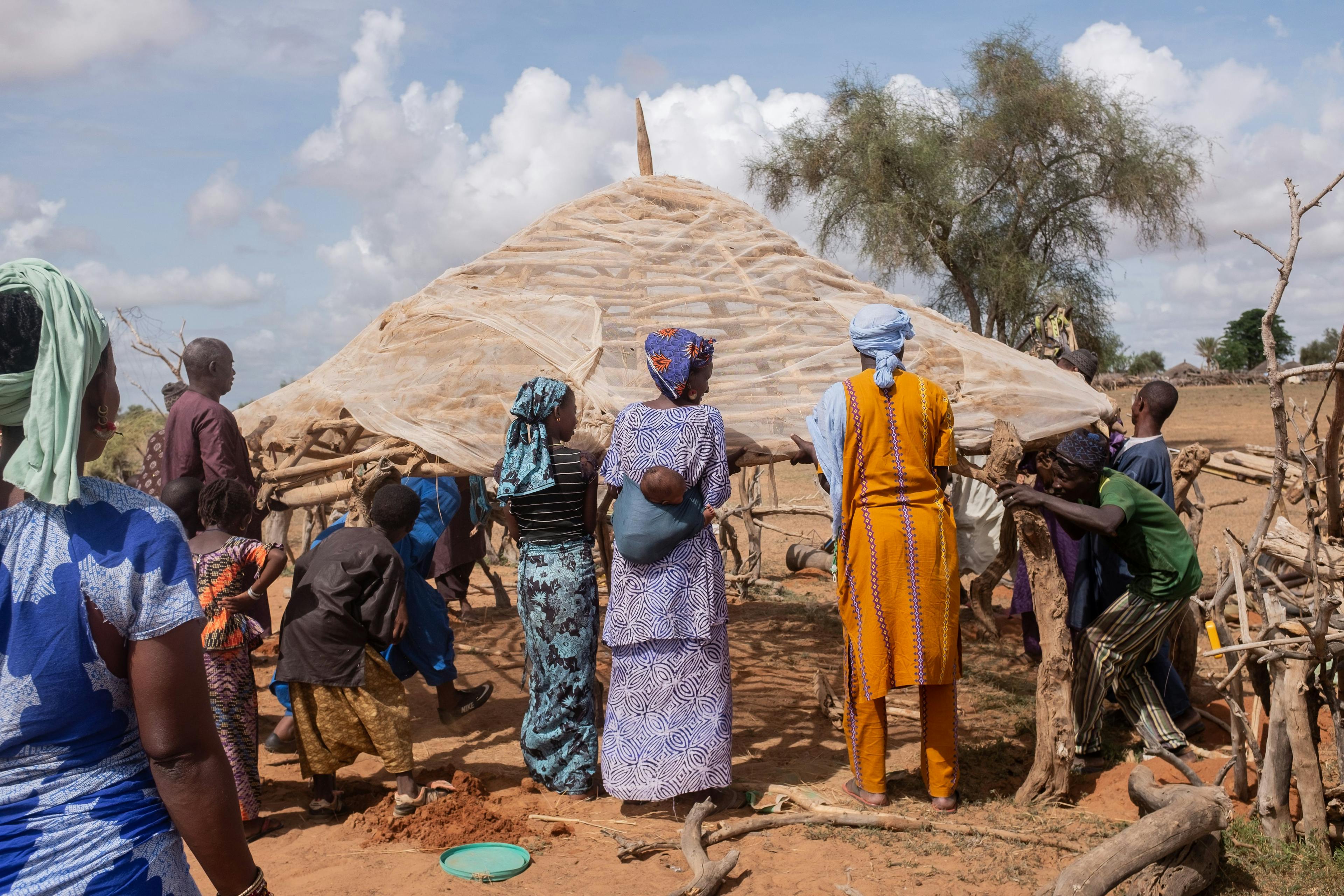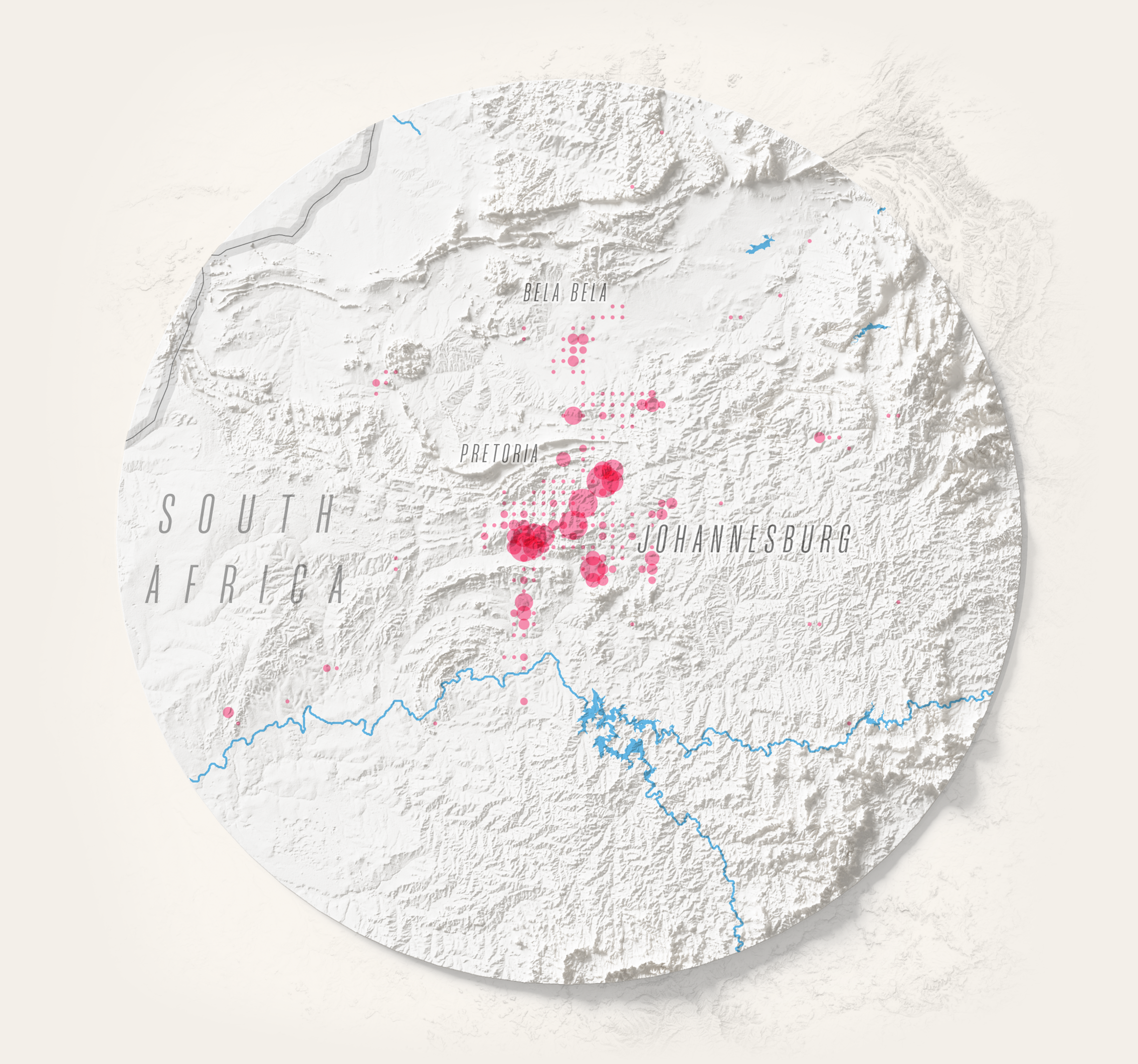Voices from thefrontlines
Climate change is reshaping our world and exposing Africans, across the continent, to increased hardship. How can its people be empowered to face climate shocks and stressors and make informed decisions to move or stay now and in the future?

Stepping into tomorrow • 5.2
WorkingTogether
WorkingTogether
An African Agenda for Action
Introduction
Through collective action, climate mobility can be harnessed to help communities and countries adapt and drive development under more severe climatic conditions.
Stronger rural-urban connections could help Johannesburg – projected to see 1.3 million people move into the city and its surrounding areas by 2050 – adapt to climate change. Planning, empowering, transformative actions implemented by 2030 will contribute to improving the resilience of those who will move and those who will stay.

A Call to Action
The African Shifts report documents the current realities of climate-forced migration in Africa and possible scenarios for future climate displacement. It makes the case for integrating advance planning for climate mobility into Africa’s strategies for climate change adaptation and climate-resilient development, including countries’ Nationally Determined Contributions (NDCs) and National Adaptation Plans (NAPs).
By preparing its people and institutions and investing in resilience, Africa can harness climate mobility to help communities and countries adapt and drive development under more severe climatic conditions. Harnessing climate mobility could also prove a unique opportunity to consolidate regional integration and further common growth on the continent.
If unplanned and poorly managed, future movements risk adding stress in already fragile places, potentially heightening tensions around land and water resources. Sudden and large population shifts affecting African cities could undermine planning efforts and social cohesion. Particularly severe outcomes would see people stranded as a result of poverty, age, disability, or legal barriers, leaving them highly exposed and vulnerable to increasingly hazardous climatic conditions.
Addressing climate mobility begins with understanding its spatial dynamics and the affected communities. Starting with the forecasted hotspot areas allows for deeper analysis, local engagement, and anticipatory actions for adaptation and resilience.
Deadline 2030: Eight Actions for the Next Eight Years
Guided by three core tenets — Plan, Empower & Transform — the ACMI recommends an Agenda for Action with eight key actions for the next eight years (2023 to 2030), in line with the Decade for Action to achieve the 2030 Sustainable Development Goals and the Paris Agreement.
The Agenda for Action outlines concrete measures to advance each of the eight Actions. It calls on African leaders across sectors and levels of governance, stakeholders, and international partners to:
Plan for Mobility
Empower People
Transform Development
The way forward
The Global Centre for Climate Mobility will build coalitions of champions to drive progress on all of the eight actions and the measures needed to advance them by 2030.
By bringing different actors together, from government, finance, civil society and the private sector, forging not only a common agenda, but also actions toward shared goals, we believe the positive outcomes of people-centred, locally led, and integrated strategies are feasible within this decade.
It seems complex, yet well within the grasp of today’s Africa lies the tenacity and courage to take an ‘all of government’ and ‘all of economy’ approach to harnessing climate mobility. For policy makers this means tackling migration governance, climate action, and climate-resilient development alongside safeguards for natural resources.
The Global Centure for Climate Mobility will advance four Flagship Programmes under the Africa Climate Mobility Initiative starting in 2023. These are Climate Literacy for Stronger Agency, Green Skills for Inclusive Transition, Water Solutions for Resilient Communities, and Data and Knowledge for Local Impact.